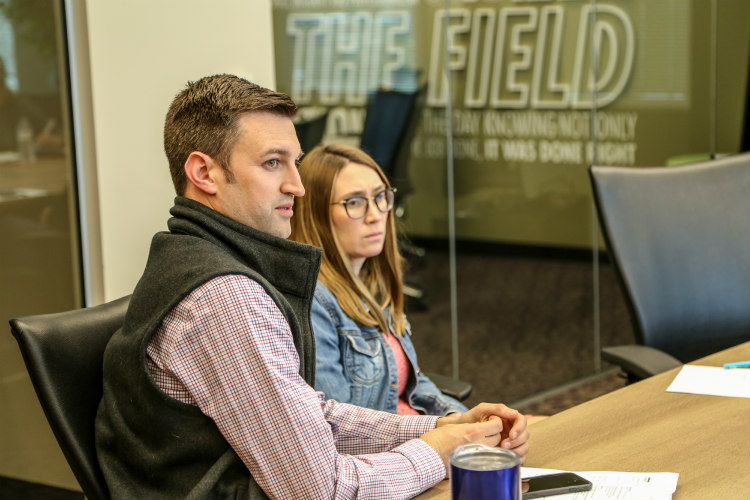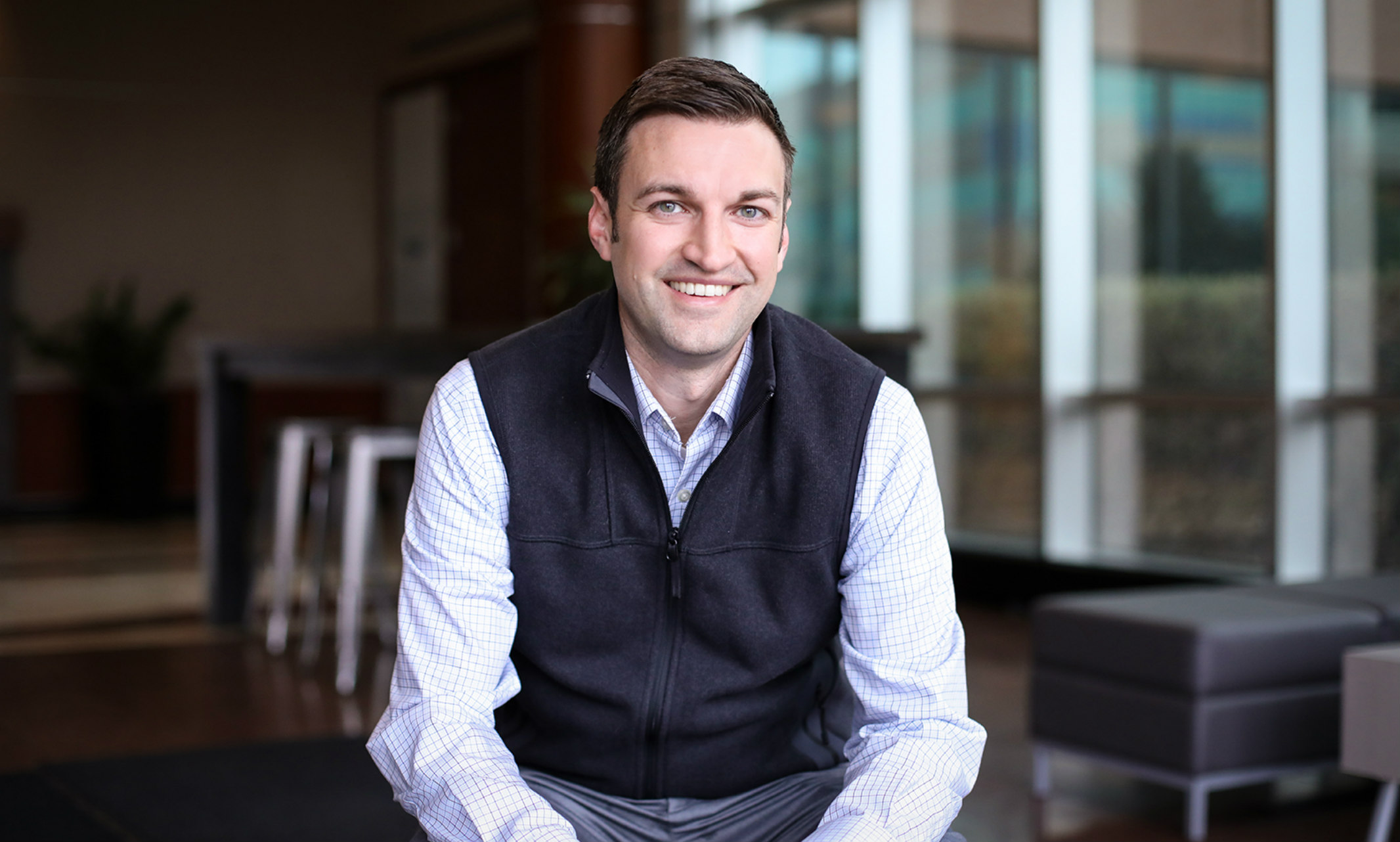Our ongoing story starts with people from around the world, converging here at UMKC. Get to know our people and you’ll know what UMKC is all about.
As healthcare practice director and a vice president for Henderson Engineers, Mark Chrisman (B.S.M.E. ’02, M.S. ’07, Ph.D. ’19) works in an already challenging field heavily regulated by codes and standards — he works with teams to design building systems (mechanical, electrical, plumbing, fire protection and technology) for healthcare facilities. Now, with the coronavirus pandemic, his field has undergone a transition to converting existing buildings into healthcare facilities.
How has your work shifted since the onset of COVID-19?
COVID-19 has presented many challenges and opportunities for us. Primarily, we are trying to be as flexible as possible to assist our healthcare clients as their needs change, which is drastically different depending on what part of the country they are located. One day, we are planning for a COVID-19 observation unit and renovating standard patient rooms for negative isolation rooms designed for patients with COVID-19 to prevent spread, and the next day we are continuing work on projects that started design before the COVID-19 pandemic. Luckily, we have many talented engineers, so we’re able to pivot quickly.
What kind of considerations are taken when converting large spaces or centers into places for patients (coronavirus or otherwise)?
The first question on the building system side is what type of patient will be treated in the conversion space — COVID-19, non-COVID-19, and capable of self-preservation or not. Once we understand the patient type and modalities, we can assess the existing building systems and design whatever renovations or upgrades are needed to support the patient functions. Typically, in large event spaces, such as a convention center, there will be a need to upgrade the mechanical system to accommodate additional outside air or exhaust requirements for the applicable patient functions. While most event spaces have emergency power in some shape or form, upgrades likely will be required to support the additional mechanical system work as well as power for any additional life support or technology systems needed.

Why did you choose this career/field?
I got into engineering primarily because I loved building with Legos as a kid and I enjoyed the process of taking things apart and putting them back together. My father and both of my grandfathers were engineers. While they were all more focused on the industrial side of engineering, I went the mechanical route as it allowed several different paths forward, including consulting, manufacturing, and processing. After two internships, I ended up interviewing with a consulting firm (Henderson) and two different types of manufacturers. I chose Henderson because during the interview process the people were really great and I felt like it fit me culturally. Nearly 16 years later, I can say that it was the best decision I’ve ever made, both professionally and personally. It’s an amazing, inspiring place to work with an excellent culture filled with fun, talented colleagues.
You’re a three-time UMKC graduate. What did you most appreciate about UMKC?
I liked being close to home to help my parents and siblings during my undergraduate degree and my wife and children during my graduate degrees. I also really like that it is a beautiful and ever-growing campus tucked inside a great city with some tremendous resources nearby, including the Miller Nichols and Linda Hall libraries. The schedule was flexible enough for me to work through all three degrees without any major issues. Lastly, everyone I encountered during my time at UMKC was always willing and able to assist in whatever way they could to further my education. They also provided support in several ways to help me make industry connections.
"Everyone I encountered during my time at UMKC was always willing and able to assist in whatever way they could to further my education."
Who has been a great influence in your life?
My parents, first and foremost, but also my grandparents, and many friends of my parents. At UMKC, there were several professors who helped guide my path, including Dr. Bryan Becker (now retired) who has been a mentor for many years and served as my advisor on both of my graduate degrees. I have also had several great mentors at Henderson Engineers, including Darrell Stein and Shane Lutz. It really does take a village, and I have found that having a large network has been beneficial in picking up skills and knowledge.
How are you now using your influence to impact others?
I have always had a passion for learning and then passing that knowledge along, which occurs through mentoring at Henderson Engineers and Henderson Building Solutions. My current role has allowed me to expand my reach by sharing technical knowledge and thought leadership so we can help others working in the engineering and healthcare industries.

